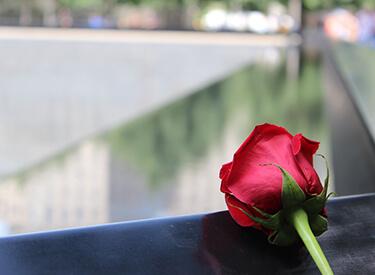The health effects of exposure to the toxins of Ground Zero after 9/11 are well-known—asthma, chronic obstructive pulmonary disease (COPD), leukemia, breast cancer, colon cancer, and lung cancer, not to mention post-traumatic stress disorder (PTSD) and the myriad mental health disorders first-responders suffer. Such conditions result in a significantly diminished quality of life and lowered life expectancy for individuals who suffer them.
But the COVID-19 pandemic has added another layer to the suffering of this population. While there is very little data as of the date of publication, death certificates indicate that 9/11 first responders are succumbing to COVID-19 at higher rates than the general population.
9/11-Related Conditions Increase the Risk of COVID-19 Complications
Individuals who suffer from certain 9/11-related conditions are at a higher risk of becoming seriously ill or developing complications from COVID-19. This is because the virus is a respiratory illness that attacks the lungs, and those who suffer from pre-existing respiratory illnesses or weakened immune systems are more vulnerable to its effects. Respiratory illnesses are widespread among 9/11 survivors and first responders due to the toxins present in the air they breathed at Ground Zero in the weeks and months after the attacks.
According to the Centers for Disease Control and Prevention (CDC), individuals with the following conditions are at an increased risk of severe illness from COVID-19:
- Cancer
- Chronic kidney disease
- COPD
- Immunocompromised states from solid organ transplants
- Obesity (body mass index of 30 or higher)
- Serious heart conditions, such as heart failure, coronary artery disease, or cardiomyopathies
- Sickle cell disease
- Type 2 diabetes mellitus
And individuals with the following conditions may be at increased risk:
- Asthma (moderate-to-severe)
- Cerebrovascular disease
- Cystic fibrosis
- Hypertension or high blood pressure
- Immunocompromised state from blood or bone marrow transplants, immune deficiencies, HIV, use of corticosteroids, or use of other immune weakening medicines
- Neurologic conditions (including dementia)
- Liver disease
- Pregnancy
- Pulmonary fibrosis
- Smoking
- Thalassemia
- Type 1 diabetes mellitus
Many of these conditions are known to be common among 9/11 survivors and first responders, including asthma, COPD, and pulmonary fibrosis. And even if a 9/11 survivor or first responder does not suffer one of the enumerated conditions, individuals with weakened immune systems—such as those who have undergone chemotherapy or radiation—are also at a higher risk of severe illness from the virus.
The Full Extent is Not Yet Known
As we are still in the midst of the COVID-19 pandemic, the full extent of the impact of the virus on 9/11 survivors and first responders is not yet known. However, early death certificates indicate that members of the 9/11 community are dying of COVID-19 at a higher rate than others in their age bracket. According to some estimates, the true numbers may eventually reach into the hundreds.
Contact a WTC Lawyer for More Information about 9/11 Survivors and COVID-19
For more information about the options available to 9/11 survivors and first responders—including those suffering from COVID-19—please contact a WTC lawyer at Pitta & Baione by using our online form or calling us at 844-982-2667.



